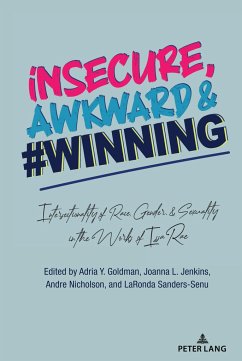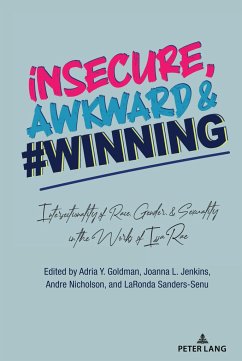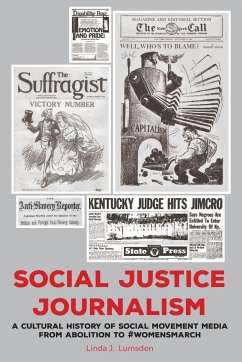
Dangerous Dames
Representing Female-Bodied Empowerment in Postfeminist Media
Herausgegeben: Hernández, Leandra H.; Martinez, Amanda R.
Versandkostenfrei!
Versandfertig in 6-10 Tagen
40,25 €
inkl. MwSt.
Weitere Ausgaben:

PAYBACK Punkte
0 °P sammeln!
This book illuminates the rhetorical work performed by contemporary representations of a specific type of postfeminist hero who has garnered a lot of cultural capital: women who are smart, capable, physically agile and fit, and proficient with weaponry and technology. Employing critical/cultural and feminist approaches, Heather Hundley, Roberta Chevrette, and Hillary Jones engage with a range of theories including intersectionality, critical race theory, postmodernism, and posthumanism to examine a range of contemporary texts, including Kill Bill, Volumes I and II; The Hunger Games films; Wond...
This book illuminates the rhetorical work performed by contemporary representations of a specific type of postfeminist hero who has garnered a lot of cultural capital: women who are smart, capable, physically agile and fit, and proficient with weaponry and technology. Employing critical/cultural and feminist approaches, Heather Hundley, Roberta Chevrette, and Hillary Jones engage with a range of theories including intersectionality, critical race theory, postmodernism, and posthumanism to examine a range of contemporary texts, including Kill Bill, Volumes I and II; The Hunger Games films; Wonder Woman; Atomic Blonde; Proud Mary; The Bionic Woman; Deus Ex; Dark Matter; and Caprica. Contributing to a robust existing conversation about postfeminist media as well as tracing how representation has changed in recent years, Hundley, Chevrette, and Jones contend that portrayals of dangerous dames offer limitations and opportunities for audiences. Specifically, should audiences read these characters as evidence of a postfeminist apocalypse, they may heed warnings of the limited interpretations offered. Yet as more women serve as role models and gain public attention, particularly regarding their assets and abilities, they provide important equipment for living for navigating around patriarchal constraints raised by postfeminism, neoliberalism, and humanism.













